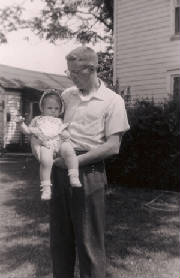|

Kalamazoo is a city in the Midwest with a population of about 245,000 souls. We are in scenic southwest
Michigan, 35 miles from Lake Michigan, and at a midpoint of about 140 miles between Detroit and Chicago. What makes this community truly special, however, is our
connection to the arts.
Kalamazoo is
internationally known for the Gilmore International Keyboard Festival and the Stulberg International String Competition. We support the arts with the Arts Council of Greater Kalamazoo, the Kalamazoo Symphony Orchestra, ballet, theatre, the Kalamazoo Institute of Arts, monthly Art Hops, and more, much more. Kalamazoo College and Western Michigan University, Kalamazoo Valley Community College, and other higher education institutions bring 40,000 students to our community, and with them, new ideas, new artistic expression.
Authors' and
poetry readings abound. Our libraries and local newspaper sponsor annual literary competitions, reading programs and book clubs for all ages. With all that focus on literary arts, Kalamazoo has produced a long and seemingly
infinite list of talented writers and poets. So many, in fact, that The Smoking Poet has dedicated a page, Kalamazoo
and Beyond, to feature our artistic talent and those who sponsor and support our arts-rich community.
Take a bow,
Kalamazoo!
Amy
Newday
(Shelbyville,
Michigan)
Now
that you
have fit
the smallest
key
into the
smallest door
and swung
wide
the lids
of your eyes,
you must
choose:
your life
or the dream
of it, the
world
or the tale.
Dust rises
in the west.
A flock
of sheep,
perhaps,
or your
brothers
with their
stones
and swords.
Whatever
is coming
for you
will arrive
soon.
Even so,
don’t rush
your decision.
Hold
the broken
gourd
of your
heart in both hands,
a begging
bowl, empty.
When you
have cried
enough,
look inside
and read
what you have written
there in
the water.
BIO
The Girl and
The Dog
Cheryl Peck
(Three Rivers,
Michigan)
The girl is sleeping like an angel. Her expression is so serene I hate to wake her.
In the living room the dog has spotted more trespassers on the sidewalk. She chuffs a warning, releasing a barely audible
growl, but they cannot hear her and they never heed her warnings. Any minute now she will erupt in another chorus of sharp
barks which are, I fear, loud enough to wake the dead.
Usually the girl wakes up to reprimand the dog. It’s her dog.
The dog is a nice dog, a Shepherd mixed with something smaller, a forty pound muscular athlete. A running companion
for a woman who can no longer run. Now the dog trots restlessly to into the kitchen, her nails clicking lightly on the hardwood
floor. She’s on her way to the laundry room to check her food and to keep track of how much of her water the cat drank.
She has lived with us for a year and a half now, a co-owned dog. The girl comes and goes, but as the filaments of her former
healthy life continue to unravel, she struggles to maintain herself, much less a dog. So she comes and she goes, our house—her
mother’s house—a symbol of both what she has left and what she has lost. The dog stays here. With my compromised
knees and her mother’s bad hip we struggle to find ways exercise the dog. Neither of us run. Neither of us ever ran.
We take the dog to the park and she runs around us. Come on. Come on, you’ll
like it. Come on, let’s run…
The girl has
not been running in almost two years. She may have tried, once or twice, last fall. On her good days she gets up out of bed
and walks the dog. Or, on her good days she gets up and leads a normal life, but those days exist mostly in the past and maybe
again someday in the future. On her good days, as her ‘good days’ are now, she and the dog walk three or four
blocks west to where there is a field, and then she stands and waits while the dog runs the field. And then they come home
and she goes back to bed.
The dog is barking again: the garbage men have come for the trash. This offends her. We save all week and on Mondays
we proudly display our trash in the front yard as proof of how well we have done and then men in jumpsuits and a big truck
come along and steal it. Every week. You need to come out here and look at this,
the dog warns me. She is ever-diligent as a watchdog. Something looms out there, threatening us all, and she is ready for
it.
The girl had
a bad night last night. Yesterday she had a bad day. I wonder if these quantifications
of time that we use to measure off our lives even matter to her any more. One is bright, one is dark. Yesterday was cold and
rainy buried under clouds and we all laid low, huddled under blankets and coats to ward off the damp: if you had spent hours
curled up in a ball, willing the pain away, and you floated back to awareness of nausea and still more pain, would it matter
if it was day or night or even which day it was?
And still, the bright days seem the most ironic to me. It is spring. The leaves are unfolding on the trees, the shrubs
are blooming, everything is waking up, stirring, stretching out, reaching up for the sun. The dog spends more of her time
outside, people are walking up and down the sidewalks with their babies, the entire neighborhood is awake and alive and energized
with the promise of new life…and the girl is still sick.
Should I tell you the nature of her illness? The Latin names, the lists of symptoms and criteria, the labyrinth of
narrow, tiny aisles of specialists that must be navigated again and again, up and down, lost souls bumping into dead ends,
grasping desperately for a pill or a treatment or a diagnosis or THE ANSWER which does not exists in the appropriately labeled
box on a clipboard on a desk behind door number five. She is ‘not sick enough’ to be treated for what she has,
although what she has could kill her. Not to fear—so could the cure. No one wants to hear that. No one wants to listen.
“You need to find her a different doctor,” my friends direct me, as if I, or she, or the doctor is the problem.
Perhaps there is nothing wrong with her: perhaps she is a bad patient. She is laying silently in the bed now, her face smooth,
at peace. Last week when, during another episode of pain, I asked her how she was doing, she described her status as, “I
can’t find a doctor and I can’t die.” She has a new doctor now. At least for now. The doctors may not know
how to treat her illness, but they sure as hell know how to prescribe drugs to mask it. There are times when her speech is
so slurred I stop asking her to repeat herself, and I resist counting the references she makes to death.
The dog has warned off seven intruders this morning alone, sharp, angry warnings of threat and doom. I try to yell
quietly. Stop barking. Let her sleep, she needs the rest. The girl has not responded
to the dog at all this morning.
I am not qualified to make these determinations, nor, as we chase this line that blows like a paper wrapper in the
wind, do I have any idea when or where to draw it. I go stand in the doorway and watch her sleep. Has she moved? Is she breathing? Should I shake her? She looks so peaceful
I hate to wake her.
Cheryl Peck is a frustrated English major who worked as a responsible adult for thirty years and eventually
retired to become a novelist. She is the author of three books, Fat Girls and Lawn Chairs, Revenge of the Paste Eaters, and
Splitting the difference, the first two being humorous memoirs and the third a book of poetry. She lives with her partner,
an aging cat and a cheerful dog. She is (still) working on a novel.

|
| Kathy in the arms of her father |
Contract terms for one daughter
Kathy Jennings
(Kalamazoo, Michigan)
His soul says:
You will grow up as a child among snapping wolves
scarred, scared and strong enough to rule an empire,
your ears laid back, growling deep in your throat you will bite
off the hand of the man who reaches for your heart.
The summer I tell you about crazy I will get it all wrong. You will remember
sitting at the picnic table, the porch light pressing back the dark. I will tell you
they warned me about your mother but I married her anyway.
I’ll say it’s what happens when you’re young and think you’re in love.
You will expect my love. Left, or lost, or blasted away
behind the Browning Automatic Rifle I carried in Korea.
You will love me anyway. Children always do.
The night I set out across the barnyard,
light a cigarette and lean against the Studebaker as twilight
rises from the ground, so far away no one can reach me,
I will teach you loneliness by example.
I will be at the hardware the afternoon a lightning bolt in a necktie ricochets
through the living room. Your mother. You will try to carry her
to the hospital on your shoulders.
The year you turn 17 you will stop talking to me altogether.
You will never forgive me for giving away your dog.
You will want to hate me the day I chase you down the street,
grab you from behind and smack you there before God and the neighbors.
My God and my simple, black-and-white beliefs will not satisfy you.
My picture of the president in the kitchen will appall you.
My donations to every pastor who thumped a Bible will distress you.
When I grow old we will sit together. You tell me
I can no longer live in my home. You will cry.
After I've forgotten them, you will ask about relatives you’ve never met.
I will ask if you ever wanted brother. You'll say no.
You will never see me as the boy who holds a rabbit to his chest.
Who keeps homing pigeons out back.
Who names a rat Squeaky and trains it to come when called.
I will explain offsides to you.
I will teach you to fish from the shore.
We will pick blackberries.
I promise to leave you without going away.
You will not understand any of it till I die.
To all of this, my soul says: Yes.
The End
His eyes are closed, his jaw rigid, his mouth slightly open
as each breath takes three stutters to go in and hesitates
before coming out. The call came at midnight: If you want
to be here at the end come now. So we rounded up Mother
and now the three of us sit beside the bed and watch. I want
the ending to be different. Not white light and angels. Not that different.
I want the nurse who is proud of the way she convinced him she
was pregnant so he would stop kicking her to keep the story to herself.
I want him to be awake. I want him to know we are here. To say goodbye.
Maybe a benediction: May the peace of God go before you.
May you dwell in House of the Lord forever.
When we kiss his head and pat his arm I want his eyes to blink.
Something we can remember as recognition. “See, his lashes trembled.”
As the third hour moves into the fourth, I am the only one awake.
Maybe the nurse is wrong and he will breathe these horrible breaths
for days. There is suspense in each exhale. Without warning
the inhale will not come. I wake them up and tell them he is gone.
I rush down the hall, hands flapping, to tell the staff. They come in
and ask us to wait in the hall while they change the grimacing mask
that is his face to that of someone who has simply gone to sleep.
They say he went peacefully, the tiny lie of those who deal daily with death.
I heard the harsh rhythm of his breath.
It was not peaceful.
And I want a different ending.
Kathy Jennings has been a working journalist
for more than 30 years and lives to disprove the theory that reporters cannot write poetry. She has been writing poems
for many years. This is her first to be published. She currently is working on a collection of poems about her father and
his death in October, 2010. She is editor of the online business magazine Southwest Michigan’s Second Wave and a freelance
writer and editor.
THE
SMOKING POET is raising funds to become an LLC, a limited liability company, so that we can begin taking in revenue from appropriate
ads and, from that revenue, to pay our hardworking editors and excellent writers. Thank you to all our writers, editors and
readers. You are helping us grow. You are helping us continue to develop a place where we can help your art
shine.
Please
visit our Marketing, Advertising and Donations page to learn more.
We appreciate
your gift.
|

